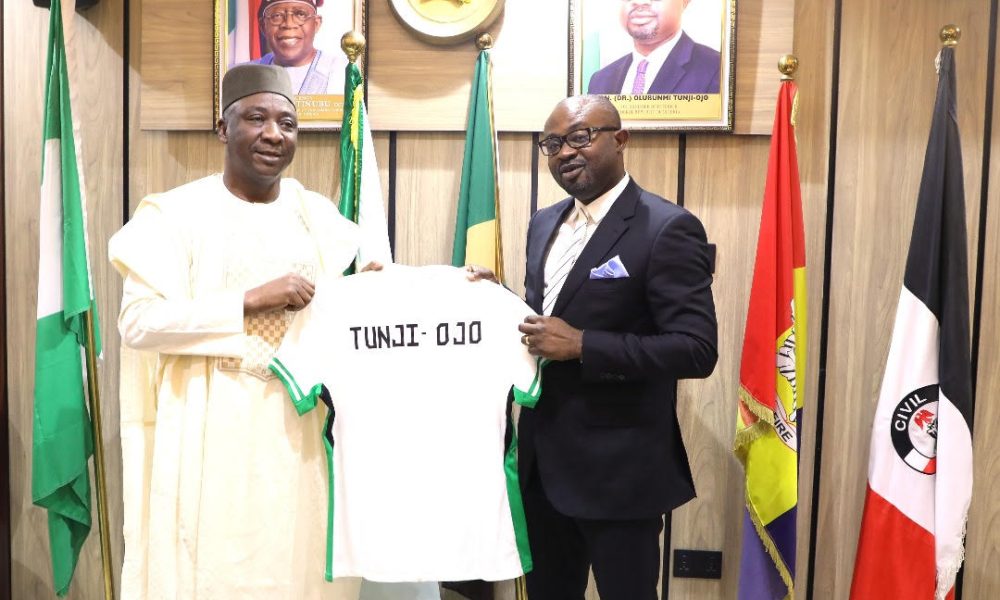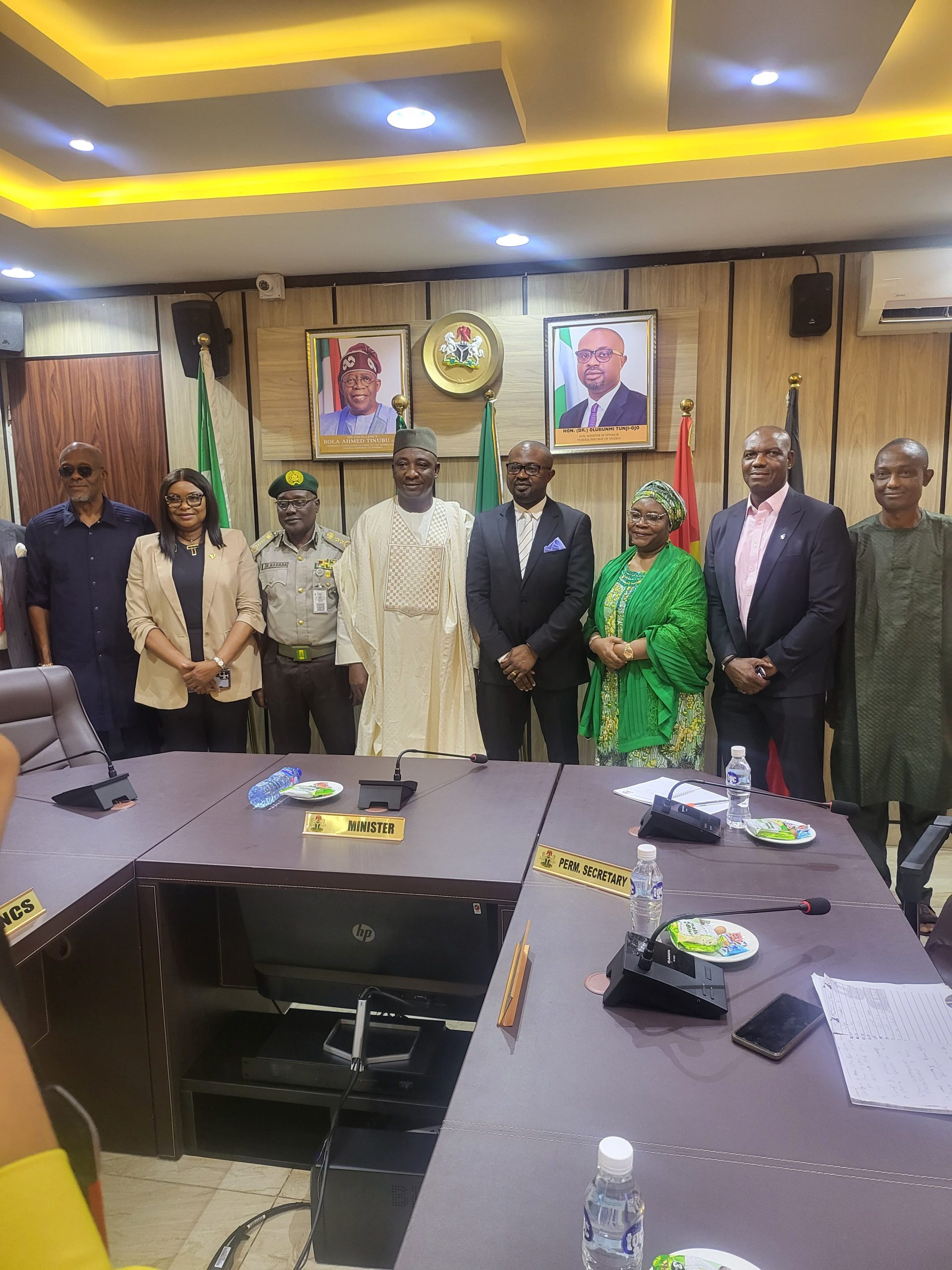An initiative of the Nigeria Football Federation to reform, rehabilitate and reintegrate into the society, young girls who are in correctional centres across the country, has been received with great enthusiasm by the Honourable Minister of Interior, Hon. (Dr) Olubunmi Tunji-Ojo.
On the tail of a presentation made to the Minister and Management Staff of the ministry in Abuja on Tuesday by NFF Executive Committee Member and Chairman of the Women’s Football Sub-Committee Madam Aisha Falode, the Minister applauded the NFF for the noble concept, and vowed to set machinery in motion to ensure the realization of the objectives attached to the initiative.
“I am hugely impressed by this presentation, which shows clearly that the NFF is aware of its responsibilities to the community, aside from preparing our National Teams for matches and tournaments. The reason why there is always an upshoot in the number of persons in correctional centres is that when they are released, they have nowhere to go other than that place from where they ended up in the centre. I see this project as filling that gap for them, giving them hope and the means by which to bring that hope to reality.
“A ‘correctional centre’ is different from a ‘prison’. While the former is a place of correction, reformation and rebirth, a prison is a place of incarceration. Those in correctional centres should have the opportunity to get reformed and reintegrated back into the society. The NFF has wowed me with this. Sport is not just a means of entertainment; it is the biggest instrument that can bridge the gap between the powerful and the vulnerable.”
Earlier, President of NFF, Alhaji Ibrahim Musa Gusau told the Minister that the Federation believes it has services to render to the community at large, apart from organization of football matches, and has picked on the vexed issue of growing number of girls in correctional centres as a first initiative.
“We are primed to use the instrumentality of football to collaborate with relevant agencies and ministries to activate processes for the reform and rehabilitation of these young ladies, so that they can be reintegrated into the society, and be useful to themselves and the society.
“The NFF is ready and willing to go the whole distance on this project. We will work with relevant agencies and ministries, and network with organisations and foundations to arrange vocational training for these girls in order that they will have a future.”
Falode’s presentation, titled FootballGood-Naija; EmpowerHer, highlighted rising figures of ladies in correctional centres across the country, as well as those awaiting trial and those already convicted, and was pegged on the ‘Gender Empowerment’ initiative of the Confederation of African Football which pilot programs had taken place in Sierra Leone, Ghana and Liberia.
Among the objectives are to support better reintegration prospects post-release; improve physical and mental well-being; develop and enhance life skills and self-esteem; foster a culture of sportsmanship, discipline and teamwork; identify and develop football refereeing and coaching potentials and; use football as a tool for education, skill-building and leadership development among young people.
With the Minister were the Controller-General of Nigerian Correctional Service, Haliru Nababa; Permanent Secretary in Ministry of Interior, Dr. Aishetu Ndayako; Director of Press, Ozoya Imohimi; Director Joint Services Department, Atinuke Ajiboye and Director of Legal Services, Omofese Era.
Also on the NFF delegation were the Deputy General Secretary, Dr. Emmanuel Ikpeme; Director of Communications, Ademola Olajire; Director of Legal Services, Okey Obi; Director of Technical, Augustine Eguavoen; Director of Competitions, Ruth David and; Chief Protocol Officer, Emmanuel Ayanbunmi.
PHOTO 1: Gusau presenting a Nigerian jersey to Minister Tunji-Ojo.

PHOTO 2: Tunji-Ojo (4th from right), Gusau (4th from left), Ndayako (3rd from right), Falode (2nd from left), Ikpeme ((left), Eguavoen (2nd from right) and Nababa (3rd from left).

